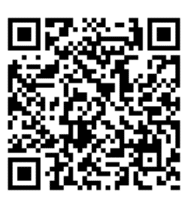



Beyond academics — student life at a Singapore IB school
The importance of extracurricular activities at HWA is emphasized for holistic student development. Beyond classroom learning, participation in diverse after-school programs enhances social skills and academic outcomes. Activities range from sports and arts to cultural experiences, fostering a sense of belonging. HWA aligns with the IB philosophy, promoting community service and global engagement. Recognizing the value of co-curricular activities, the school integrates them into the academic curriculum, contributing to well-rounded student qualities and improved self-esteem. Overall, extracurricular engagement at HWA plays a vital role in shaping students’ social, academic, and personal growth.
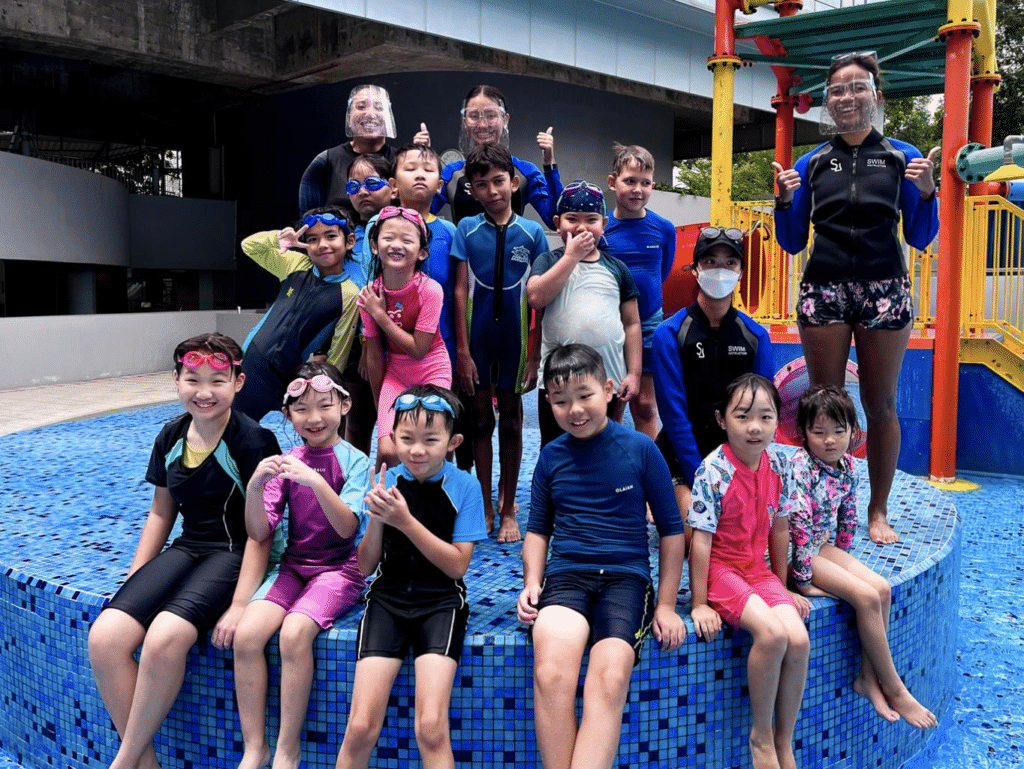

Our certified swim instructors use play-based and child-centered practices to create structured, progressive, and fun learning experiences for kids. In the Competitive Swimming program, we go beyond medals, challenging proficient swimmers to elevate their skills while honing essential character traits for success beyond the water. Our athlete-centered approach incorporates internationally-proven training pedagogies, with careful management of each swimmer to ensure optimal progression and minimize injury or burnout.
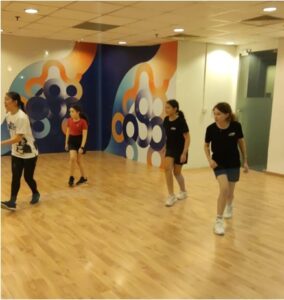
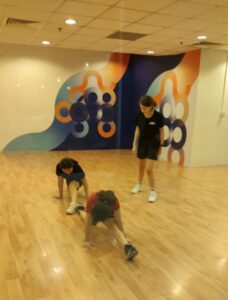
Gymnastics and Dance are both physical activities that require balance, flexibility and stability. They also focus heavily on coordination and executing specific moves with precision while exercising grace and artistry.
Gymnastics are suitable for people who love dynamic workout while Ballet are suitable for those who prefers more grace and control accompanied by music.
Many gymnasts take up dance classes to hone their body control which helps them with dance moves on the floor and other apparatus. On the other hand, dancers take up Gymnastics and tumbling classes to hone their coordination and flexibility.
To decide better, you will have to try both activities.
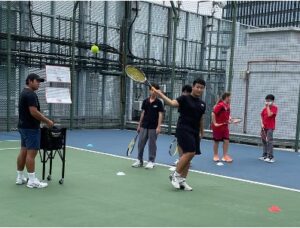
Our junior tennis program caters to various skill levels, from beginners to experienced players. We take pride in our comprehensive teaching approach covering forehand, backhand, volley, and serve techniques. Emphasizing active learning, our program incorporates fun and engaging mini tennis games, allowing students to practice their skills. Grippers will master basic strokes like forehands, backhands, volleys, and serves through mini tennis and other tennis-based games, ensuring they have fun while learning and want to keep coming back for more.
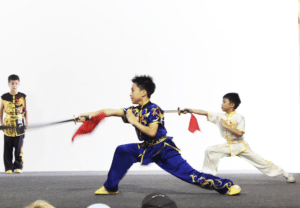
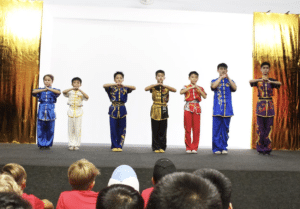
Gymnastics and Dance are both physical activities that require balance, flexibility and stability. They also focus heavily on coordination and executing specific moves with precision while exercising grace and artistry.
Gymnastics are suitable for people who love dynamic workout while Ballet are suitable for those who prefers more grace and control accompanied by music.
Many gymnasts take up dance classes to hone their body control which helps them with dance moves on the floor and other apparatus. On the other hand, dancers take up Gymnastics and tumbling classes to hone their coordination and flexibility.
To decide better, you will have to try both activities.
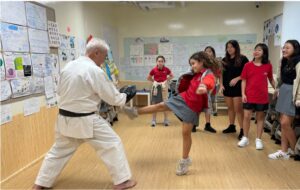

Gymnastics and Dance are both physical activities that require balance, flexibility and stability. They also focus heavily on coordination and executing specific moves with precision while exercising grace and artistry.
Gymnastics are suitable for people who love dynamic workout while Ballet are suitable for those who prefers more grace and control accompanied by music.
Many gymnasts take up dance classes to hone their body control which helps them with dance moves on the floor and other apparatus. On the other hand, dancers take up Gymnastics and tumbling classes to hone their coordination and flexibility.
To decide better, you will have to try both activities.

International Chess
Conquer the classic game of kings and queens from around the globe. Develop your tactical acumen and engage in intense battles of wits.
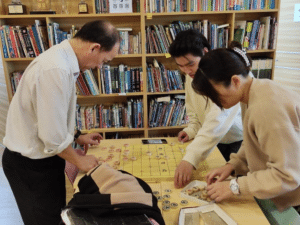
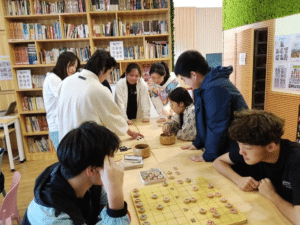
Chinese Chess
Embark on an ancient journey with this traditional Chinese game. Command your soldiers, cannons, and horses to outwit your opponent and claim victory.

“Does your child want to unleash their creativity and delve into product design? How about understanding the workings of a 3D printer? Our 3D Design & Printing CCA is tailor-made for them! They’ll grasp the basics of 3D design using industry-standard software, creating their unique products. Each week, they’ll explore diverse methods of creating and manipulating 3D models. They’ll also master the fundamentals of 3D printing, witnessing it in action, and even take home their personally crafted 3D printed model. Excite your child’s imagination with this hands-on experience!”
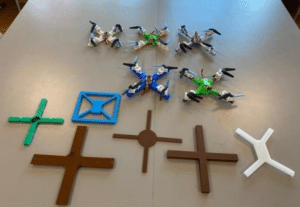
Junior Aviation & Drone
(7-9 years old)
The lesson will cover the flight timeline from its early beginnings to pioneers. Participants will explore the concepts behind flight, including the forces and maneuvers involved. The program also includes learning about the future of aircraft design. Finally, participants will engage in practical flying lessons with drones.
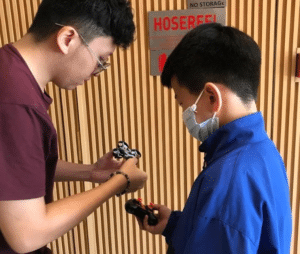
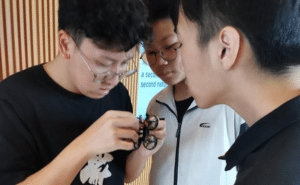
Senior Aviation & Drone
(10-12 years old)
Participants will start by exploring the ancient history of flight, tracing back to the time of Pterosaurs, Quetzalcoatlus, and Raptors. They will understand the role of evolution in shaping the birds we have today. Next, participants will delve into the risks humans took to achieve flight and explore the remarkable accomplishments in aviation today.
Advanced Aviation & Drone
(13-16 years old)
Lessons will begin with the origins of flight – literally – Participants will play the role of anthropologists’ as they
uncover the beginning of flight, from the first insects to the mighty Pterosaurs and to the evolution of birds.
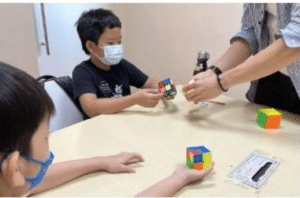
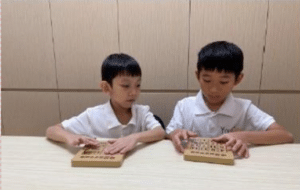
Skill up and have an impact! Your Journey starts here. Time to build your Super Brain!
CUBING
Cubing is an integration of various trainings. It helps improve one’s ability to learn independently, improve hands and brain skills, and increases the competitiveness as you progress to different levels.
MEGA ARITHMETIC
The Arithmetic program uses mental arithmetic and memory techniques along with IQ games to promote the brain development of children between the ages of 5 and 12. It creates synergy in the brain by combining the techniques mentioned.
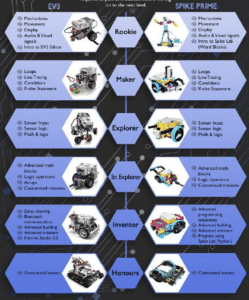
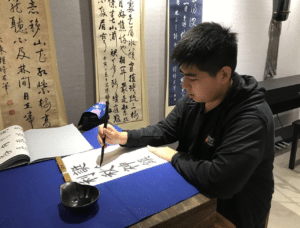
Calligraphy classes offer numerous benefits for artistic and personal development, including:
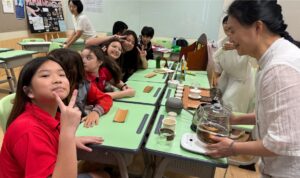
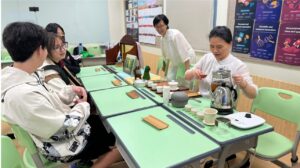
Learn the art of tea appreciation, brewing, and usage methods. Engage in listening to traditional stories and interactive games, blending education with entertainment, to understand the wisdom of traditional Chinese tea ceremony.
Regular consumption of pure Tea Fate tea helps children regain vitality and boosts immunity. It reduces the likelihood of falling ill or speeds up recovery during illnesses.
Tea tasting sessions aid children in calming down, enhancing their awareness, and discerning the purity and energy of teas and food. They learn about the distinctive characteristics of six major tea categories, brewing techniques, their respective health benefits, and how to
incorporate tea effectively into daily life.
During tea brewing, practicing rhythmic tea-serving movements helps children improve their control over their bodies and emotions. Influenced by traditional culture, children are more likely to discover a sense of unity between mind and body and experience happiness.
Serving tea to family members, teachers, and others in stills a sense of respect and filial piety in children.
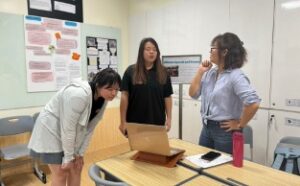
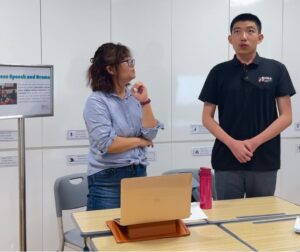
CCA Objectives
To impart to students techniques of oratorical performances.
To expose and nurture the acting skills and potential within each of our members.
To build up one’s self-esteem by giving them a platform to showcase their talents.
CCA Description
Chinese Drama is a CCA that aims at grooming students who are confident and poised on stage and can take on various performing roles ranging from actors, story tellers to masters of ceremonies. Members practice and learn performing skills under the guidance of experienced instructors who often are also mature stage performers themselves.

Imagine honing the art of playing the Bamboo Flute, a cherished gem in the Chinese orchestra. Its melodious tones embody tradition and culture, captivating generations.
Uncover the mysteries of this captivating insurement as its flute membrane weaves a distinctive symphony – a harmonious fusion of brilliance and resonance setting it apart from other flutes.
With its elegant design and lightweight build, the Dizi becomes your musical companion, always ready to share its melodic tales wherever you may journey.
Our team of dedicated and proficient Dizi instructors is here to guide you on an illuminating path, ensuring mastery of every Dizi nuance and technique. Whether you’re a novice or refining skills, our seasoned instructors will be your mentors, illuminating the road to Dizi proficiency.
Embark on this captivating expedition into the Dizi realm – where each note tells a story, and every lesson kindles your musical passion.


The classes, which involve learning to play the traditional Chinese stringed instrument, offer several benefits for kids. Here are some of the key advantages:
1.Cultural appreciation: Gu Qin & Gu Zheng classes provide children with an opportunity to connect with Chinese culture and heritage. They learn about the history, traditions, and aesthetics associated with the instrument
2.Fine motor skills: Playing the Gu Qin & Gu Zheng involves intricate finger movements and precise hand-eye coordination.
3.Concentration and focus: Learning to play the Gu Qin & Gu Zheng requires concentration and focused attention.
4.Cognitive development: Playing the Gu Qin & Gu Zheng involves reading musical notation, understanding rhythm, and interpreting melodies.
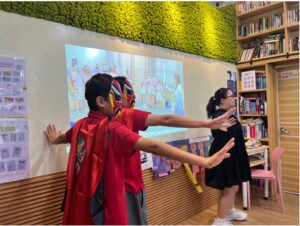
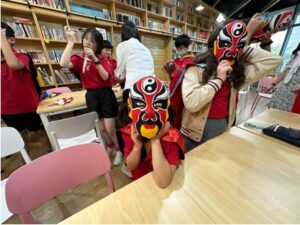
Sichuan Opera, with its vibrant costumes, captivating storytelling, and acrobatic movements, is a traditional theatrical art form that originates from the Sichuan province of China. In recent years, it has gained popularity and recognition worldwide.
As an extracurricular activity in our school, the Sichuan Opera course offers students a unique opportunity to delve into the rich cultural heritage of China, while also developing various skills and talents. This introduction will provide an overview of the Sichuan Opera course as a Co-Curricular Activity (CCA) in our school and highlight the benefits it offers to students. Whether you have a background in performing arts or simply wish to explore a new form of artistic expression, the Sichuan Opera course is sure to captivate and inspire you.
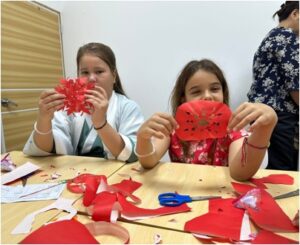
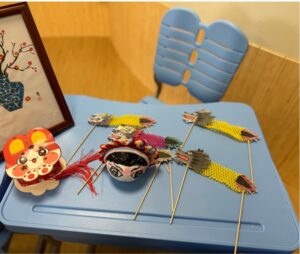
CCA Objectives
Understand the cultural differences, learn to respect others, and understand yourself.
Strengthen the knowledge and understanding of Chinese culture in the real context, and improve the ability to use the language subtly
To impart to students techniques of handcrafts, immerse yourself in the diversity of cultures on the same subject.
CCA Description
This CCA is a good place for students to relax and have fun. Here you can learn new Series of Chinese Culture knowledge from different aspects, such as festival series, food series, travel series, idiom series, etc. First, students will learn Xi cultural background and history, and then connect it with the current living environment, so that students can build an understanding and cognition of Chinese traditional culture in simple terms. Mastering skills to make some crafts with diverse materials closely related to the theme, which are thoughtful and inexpensive.

HWA International School
We encourage academic integrity, collaboration, perseverance and the pursuit of excellence, to create a conducive environment for nurturing our youths with international-mindedness
Our Campus:
Marina City Campus
6 Raffles Boulevard, Marina Square #02-100/101. Singapore 039594
NTU@One North Campus
11 Slim Barracks Rise, NTU@One North Level 4, Singapore 138664 (Admissions Office)
